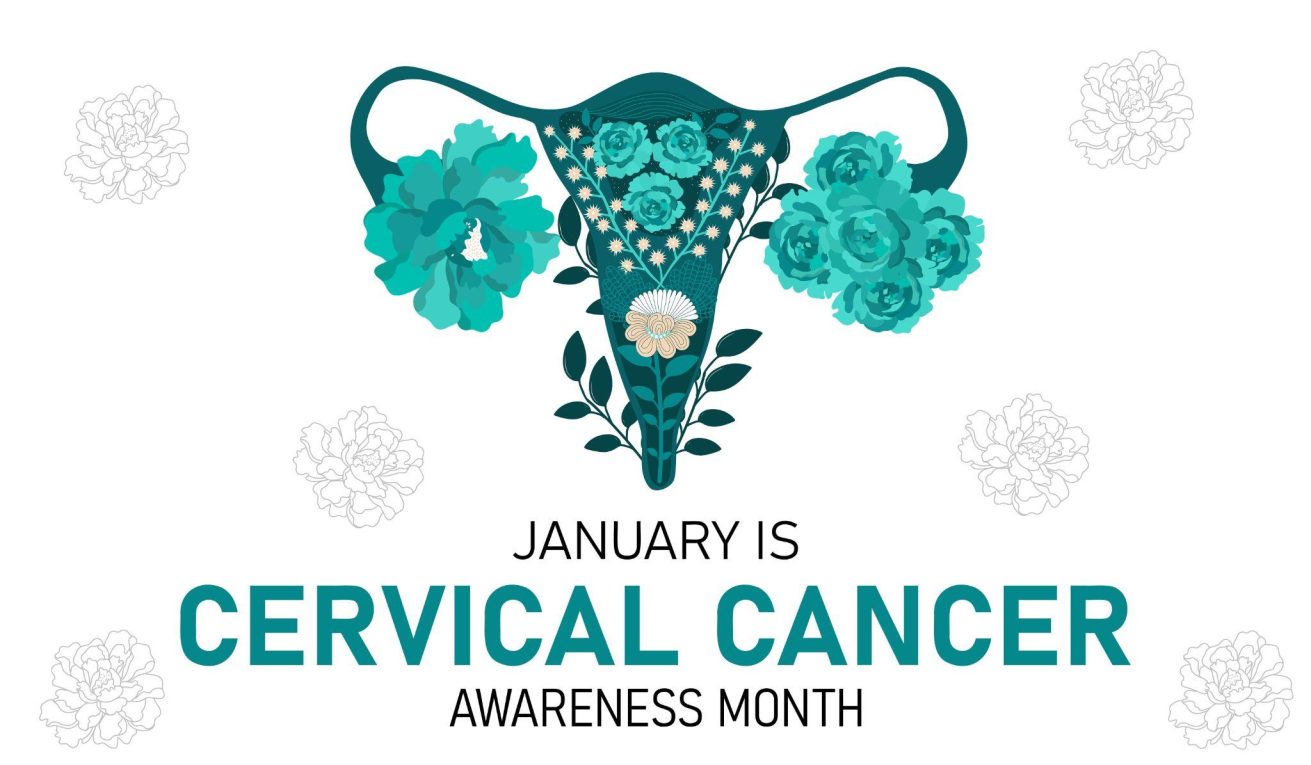In January 2024, Cervical Health Awareness Month is celebrated worldwide to raise public awareness of cervical cancer. The theme for this year’s event is “Learn. Prevent. Screen”, which emphasises the importance of educating oneself, taking preventive measures, and getting screened for early detection of cervical cancer.
During Cervical Health Awareness Month, various organisations, medical professionals, and communities join hands to emphasise the importance of regular cervical cancer screenings, HPV vaccinations, and overall cervical health awareness.
This month, we want to encourage you to learn more about cervical health and take steps to prevent cervical cancer. By educating ourselves about how to avoid this type of cancer and getting the right medical attention, we can get rid of this disease that can be stopped before it even starts.
Early detection and timely treatment can cure cervical cancer.
FAQ’s about cervical health
What is cervical cancer?
Cancer is an illness caused by cells growing uncontrollably in the body. The name of the cancer is always based on the part of the body where it originates, even if it later spreads to other areas. When cancer begins in the cervix, it is known as cervical cancer.
What is meant by cervical health awareness?
Cervical health awareness means understanding the importance of cervical health and checking for cancerous or precancerous cells through screening by a qualified healthcare professional.
What is the cervix?
The female reproductive system includes the cervix. The uterus’s (womb’s) lower, narrow portion is called the cervix. The cervix is the organ that joins the vagina (birth canal) to the main body of the uterus.
What are cervical cancer symptoms?
The symptoms of cervical cancer are:
- Vaginal bleeding between periods
- Longer or heavier menstrual bleeding
- Pelvic pain
- Bleeding after intercourse
- Pain during intercourse
- More vaginal discharge, or it may have a strong or unusual colour or smell.
- Vaginal bleeding after menopause
How is cervical cancer treated?
There are different ways to treat cervical cancer, such as surgery, chemotherapy, and radiotherapy. Usually, doctors suggest removing the infected parts or organs like the cervix or uterus through surgery to stop the spread of the cancer.
What are cervical cancer risk factors?
The primary factors that increase the risk of cervical cancer are:
- Consumption of tobacco products
- Persistent HPV infection
- Missing regular cancer screenings
- Multiple sexual partners
Who should undergo cervical cancer screening?
From the age of thirty, women should begin screening for cervical cancer every five to ten years. Starting at age 25, women living with HIV should undergo screenings every three years. According to the global strategy, individuals should get screened at least twice in their lifetime, with a high-performance HPV test by age 35 and again by age 45.
What is cervical cancer screening?
Cervical cancer screening is the evaluation of cervical health by either a Pap test, HPV test, or both.
What does a Pap smear test involve?
A Pap smear test, or Pap test, is a medical examination used to screen for cervical cancer in women.
How is a Pap smear test done?
The Pap smear test is a medical examination that checks for the presence of precancerous or cancerous cells on your cervix. In this test, the healthcare provider gently scrapes cells from the cervix, which are then examined for abnormal growth. While the procedure may cause mild discomfort, it does not usually result in long-term pain. The specimen that has been collected is sent to a laboratory for further examination.
Human papillomavirus, or HPV virus, causes a viral infection that can lead to changes in cervix cells. The HPV test can detect the HPV virus, which can cause abnormal cervical cells or cervical cancer. The test is a cervical cancer screening procedure, but it doesn’t confirm cancer.
HPV testing can be done by itself or simultaneously with the Pap test. Usually, the HPV tests look for 14 different HPV types. The HPV types most strongly linked to cervical cancer are HPV type 16 and type 18.
The HPV vaccine safeguards against nine particular types of HPV infections that are more likely to lead to cancer and genital warts.
Who should get the HPV vaccine?
The HPV vaccination is required for all boys and girls aged between 9 to 14 years. Those who have not yet received the vaccination or completed the course of shots up to the age of 26 are also advised to get the vaccine.
Few individuals between the ages of 27 and 45 can also get an HPV vaccination. Consult your healthcare professional before getting the HPV vaccine.
How is cervical cancer treated?
There are different ways to treat cervical cancer, such as surgery, radiotherapy and chemotherapy. Usually, doctors suggest removing the affected parts or organs like the cervix or uterus through surgery to stop the spread of the cancer.
Does hysterectomy protect me from cervical cancer?
No, women who undergo hysterectomy can still be at risk of developing cervical cancer; they should continue to be screened at regular intervals.
Which type of doctor should I consult for the treatment of cervical cancer?
For treatment of cervical cancer, you may consult an oncologist or gynecologic oncologist.
What steps can be taken to prevent cervical cancer?
The following are safety precautions to help prevent cervical cancer:
- Take HPV vaccine
- Get a cervical cancer screening test
- Avoid smoking
- Practice safe sex
- Have less exposure to HPV as it spreads through skin-to-skin contact
- Keeping a healthy weight can lower the likelihood of developing cervical cancer.
Looking for high-quality and affordable medical treatment?
Choose Omega Hospitals for the best and most affordable cancer treatment
With a team of skilled medical professionals and advanced equipment, Omega Hospitals is dedicated to providing the best possible care to patients.
References:
https://nationaltoday.com/cervical-health-awareness-month/
https://www.cancer.gov/types/cervical/hp
https://www.who.int/news-room/fact-sheets/detail/cervical-cancer

